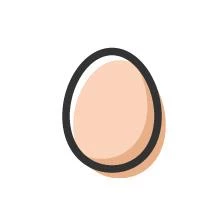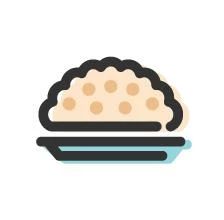
- DHA is an omega-3 fatty acid. The name DHA is shorthand for docosahexaenoic acid.
- DHA is important for toddlers because it helps promote brain structure and function. Studies have shown DHA also helps support respiratory health and contributes to the development of a healthy immune system.
- On average, toddlers only get about 25% of the expert-recommended DHA levels in their daily diets. Many experts recommend 70-100 mg/day of DHA for toddlers.
Here are the DHA levels in some common toddler foods:

Apple
Raw with skin, 1 medium
0 mg DHA

Apple Juice
1 drink box, 8.45 fl oz
0 mg DHA

Egg
Hard-boiled, 1 large, regular
19 mg DHA

Tuna
Canned, 2 oz
57 mg DHA

Broccoli
Boiled, 1/2 cup
0 mg DHA

Whole Cow's Milk
8 fl oz, regular
0 mg DHA

Chicken Nuggets
White meat, pre-cooked, frozen, 4 pieces (64g)
2 mg DHA

Quinoa
Cooked, 1 cup
28 mg DHA

Enfagrow
Two, 7 fl oz servings per day
52 mg DHA
Toddler DHA intake is important to keep in mind. The good news is that two servings of Enfagrow® daily can help close the DHA nutritional gap.
Learn More
Apple
Raw with skin, 1 medium
0 mg DHA

Apple Juice
1 drink box, 8.45 fl oz
0 mg DHA

Egg
Hard-boiled, 1 large, regular
19 mg DHA

Tuna
Canned, 2 oz
57 mg DHA

Broccoli
Boiled, 1/2 cup
0 mg DHA

Whole Cow's Milk
8 fl oz, regular
0 mg DHA

Chicken Nuggets
White meat, pre-cooked, frozen, 4 pieces (64g)
2 mg DHA

Quinoa
Cooked, 1 cup
28 mg DHA

Enfagrow
Two, 7 fl oz servings per day
52 mg DHA
2 servings of Enfagrow daily can help close the DHA nutritional gap.
Learn More*Ingredients not genetically engineered. For more information, visit enfamil.com/nonGMO

